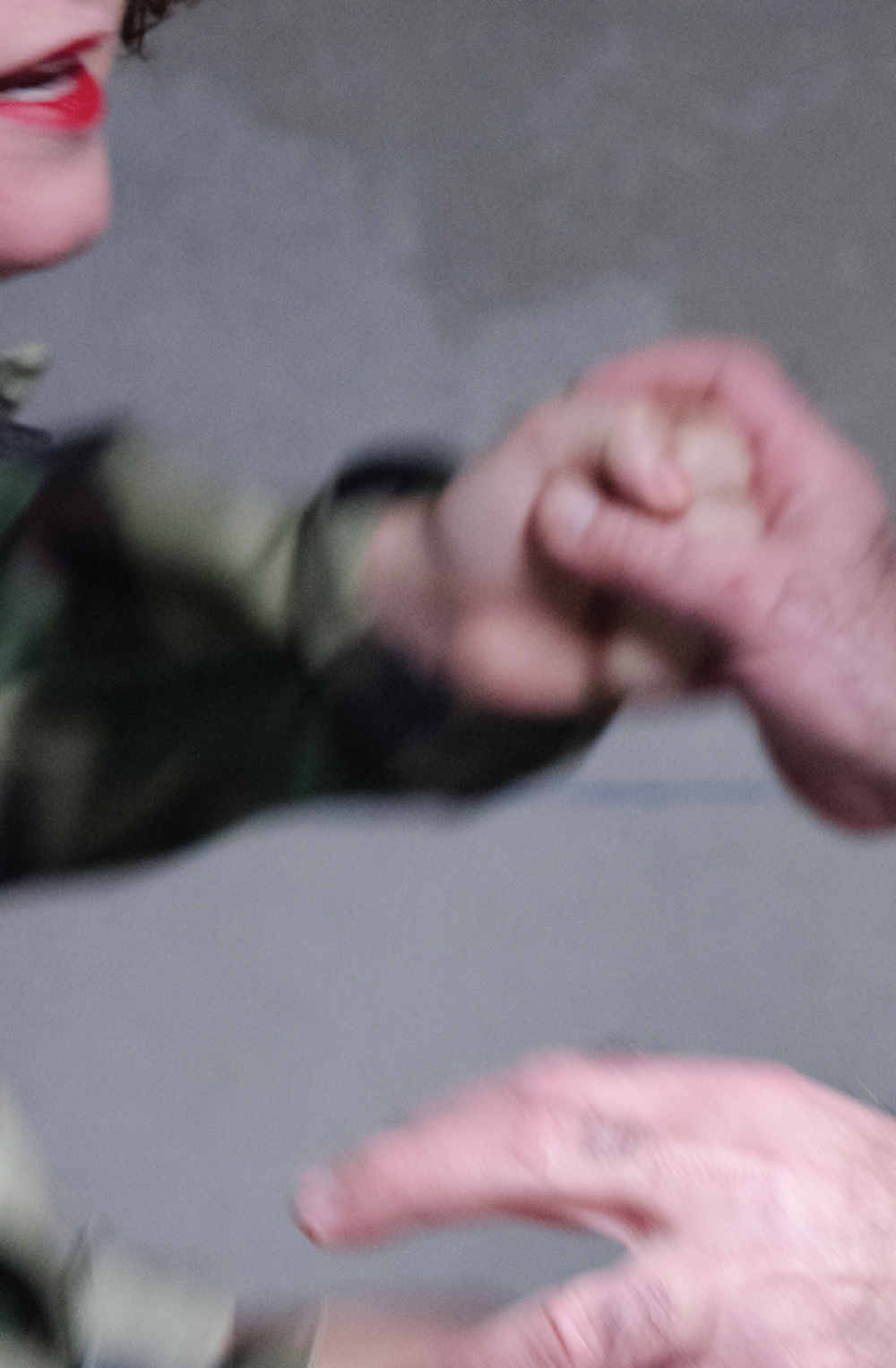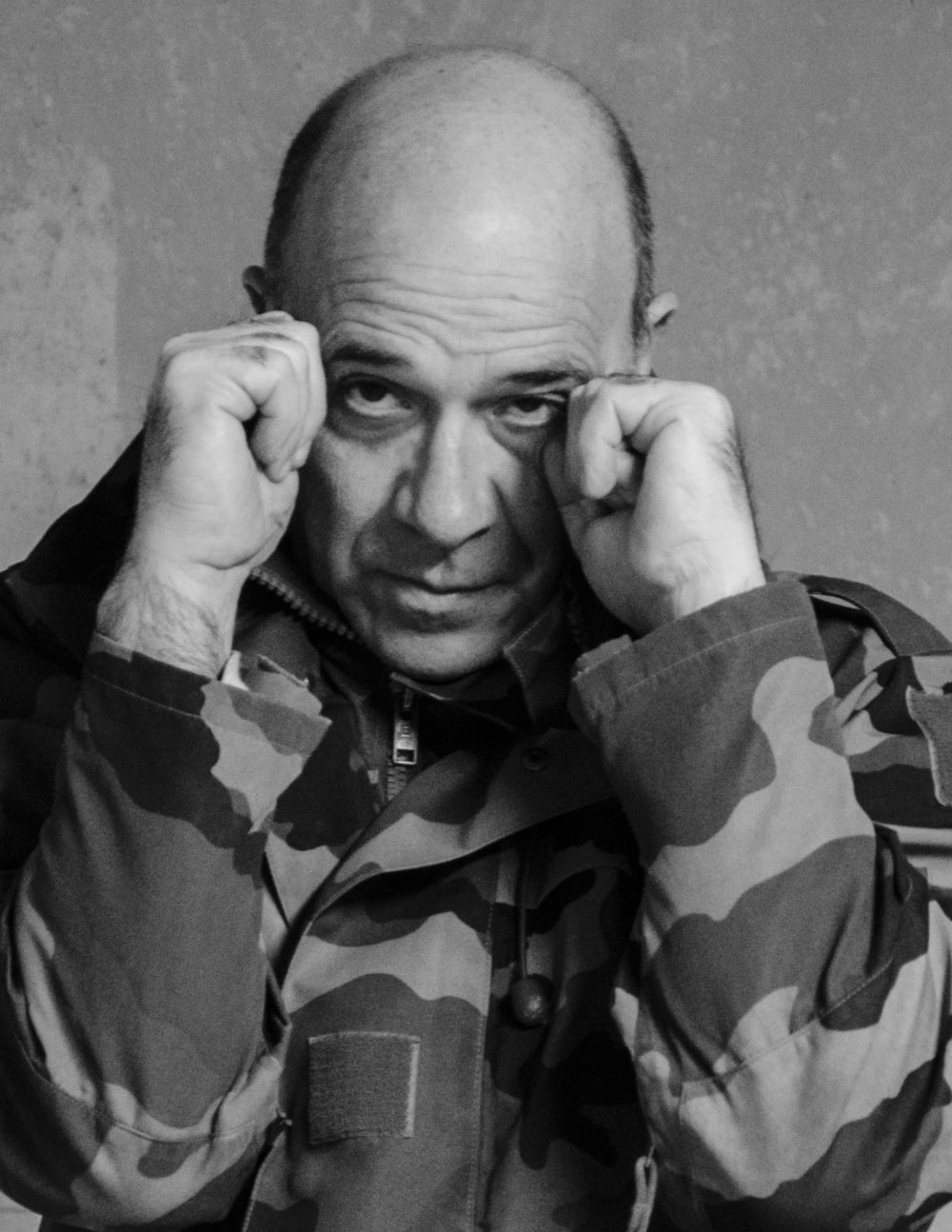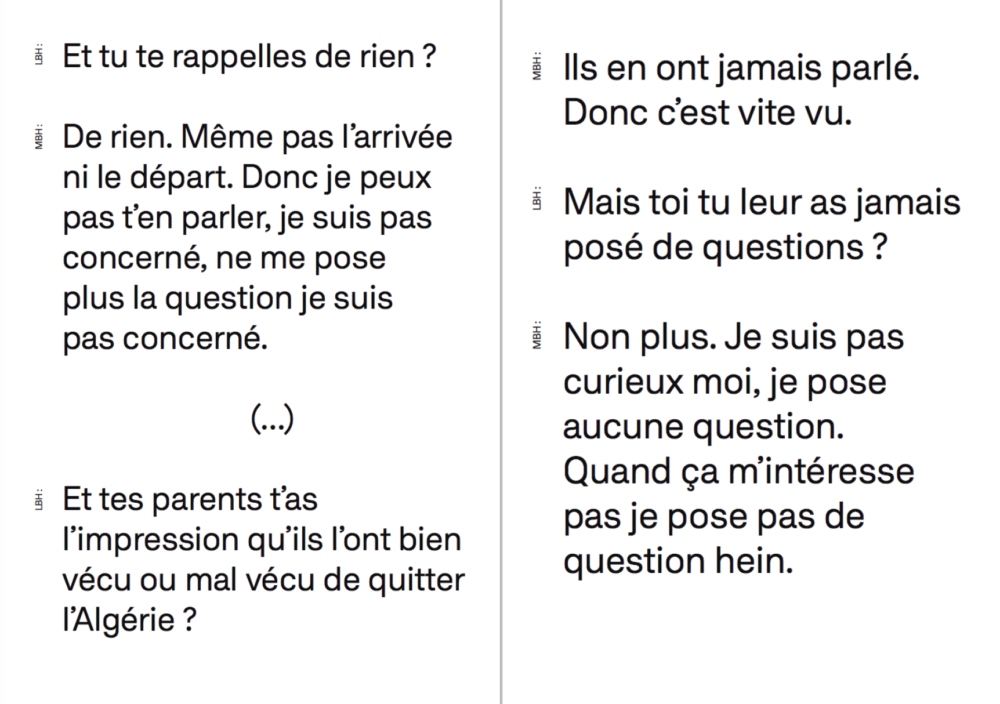New Perspectives
Laura Ben Hayoun A la moindre étincelle, c'était l'explosion (2019)
On my father’s side, it is common to call ourselves ‘pied-noir’. In this french family (from jewish ascendance), talking about Algeria was impossible. “Just one spark, and everything could explode.” is an artistic attempt to visualise what could not be spoken about.Ben Hayoun kindly stimulates her family members to talk about their lives in Algeria, a country they had to leave behind after its independence in 1962. A conversation they rather avoid as it relates to notions of colonialism, racism, torture, and terrorism.
Is it possible to create a memory when there is just silence? What could such an image radiate? Therefore Laura works with reinterpretation of images and set up reenactments. The found images, video stills, staged photographs, and personal notes, create a past and a country that has never been hers. In fact her work is a visual fight that forces us to get back into a history that became her family history, a fight between a girl and her father questioning his understandings and tabou’s. She takes us back to Oran where he was born in 1956 and to Valence where her sister and she was born both being descendants of this never passed down memory.
The work of Laura Ben Hayoun (b.1984, FR) relates to borders, migration, and imaginary territories. She studied Visual Anthropology in Lyon before pursuing a Master‘s degrees in Documentary film and a MA in Photography and Contemporary Art in Paris. Her work has been shown at Tate Modern, London (2014), at the Festival de la Photographie Méditerranéenne in Nice (2017), and at Circulation(s), Paris (2017). She has received numerous prizes and was a finalist of the 2019 Unseen Dummy Awards, Platform 2020 and shortlisted for the C/O berlin talent Award 2020. Laura Ben Hayoun lives in Paris and currently works in Alger (Algeria) and Yerevan (Armenia).
Instagram: @laura_ben_hayoun
Website: https://laurabenhayoun.com












